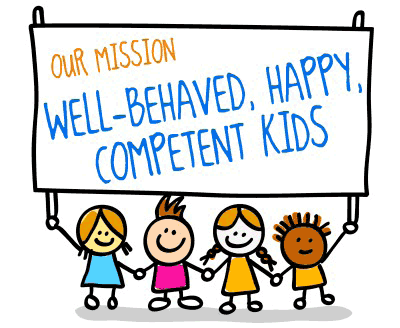Child Psychology Books & Articles: Page 1 2 3 4 5 6 7 8 9

Kids Won’t Listen? Try This! If you're a parent living with small children, you may often feel like you're invisible to your kids. After spending a day cajoling, reasoning, threatening and even screaming in an attempt to get your kids to behave, you may feel as if they never listen to you, much less respond. But all that talking is precisely the problem. If you
feel like you're invisible, you're probably way too audible. When it comes to discipline, silence often speaks louder than words.
Many parents complicate the job of discipline by setting for themselves two goals instead of just one. Their first goal is to get the kids to do what they're supposed to do, which is fine. But when kids don't respond right away, many parents add a second goal: getting the youngsters to accept, agree with, or even like the discipline. So Mom and Dad start reasoning, lecturing and explaining.
ONE EXPLANATION IS FINE All this extra talking accomplishes only two things—both of them bad.
First, it aggravates the kids, and second, it says to the children that they
really don't have to behave unless you can give them four or five reasons
why they should.
One explanation is fine. But the mistake many parents make is trying to reason with their kids as if they were "little adults," and too often adult logic does not impress or motivate young children. Once you say "No" to an obnoxious behavior, you should save your breath. Further pleading will irritate you more and give the child a chance to continue the battle — and the behavior.
SHOULD YOU EVER SPANK YOUR CHILD? It’s about time people face up to reality: more
often than not spankings are the result of parental temper tantrums. They are in no way attempts to train or educate a child. They are
simply the angry outburst of a parent who has lost control, but doesn’t know what to do next. Parents who have big problems with self control and anger management try to justify and rationalize spanking by saying things like, “You have to set limits,” “It’s for their own good,” and “Having to hit kids hurts me more than it does them.”
But research tells us that physical discipline like this tends to generate anxiety in children, lower their self‐esteem and make the kids more likely to become aggressive themselves.
Remember, the whole point of the 1‐2‐3 Magic program is to avoid the Talk-Persuade-Argue–Yell-Hit routine.
 |
|---|
Source:
Simple, straightforward parenting advice and helpful tips from Dr. Phelan's award-winning, best-selling 1-2-3 Magic Parenting Program.